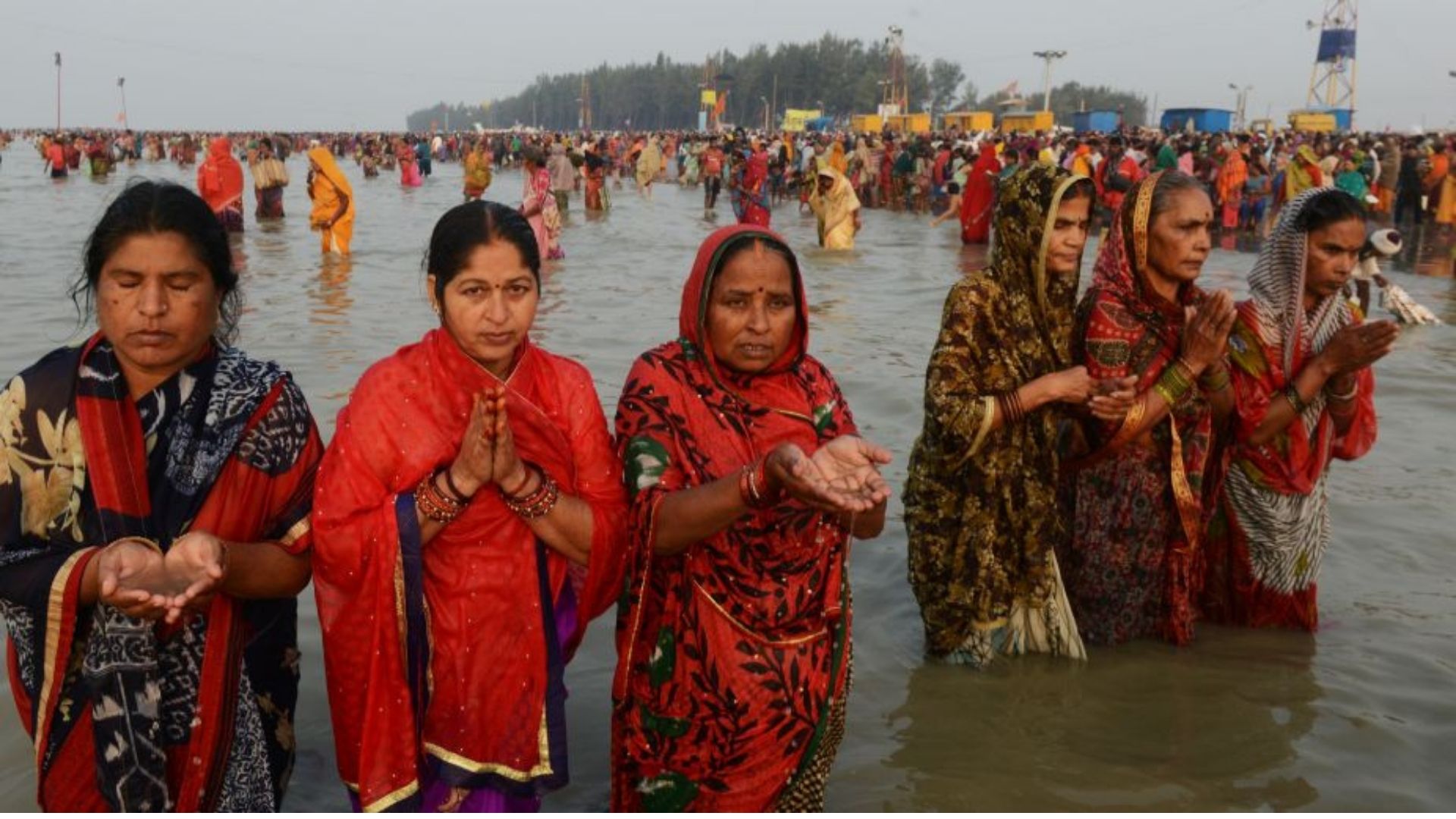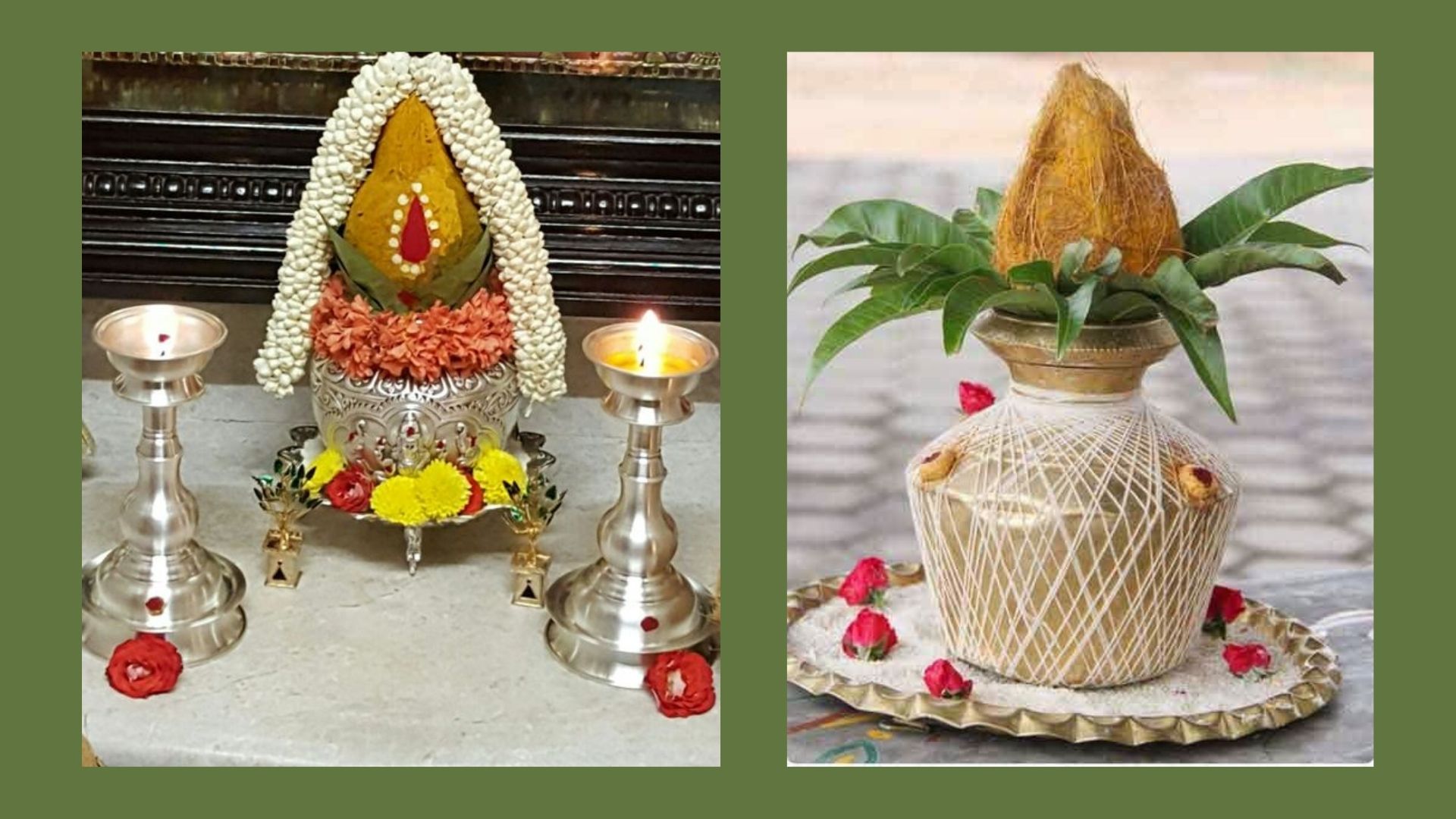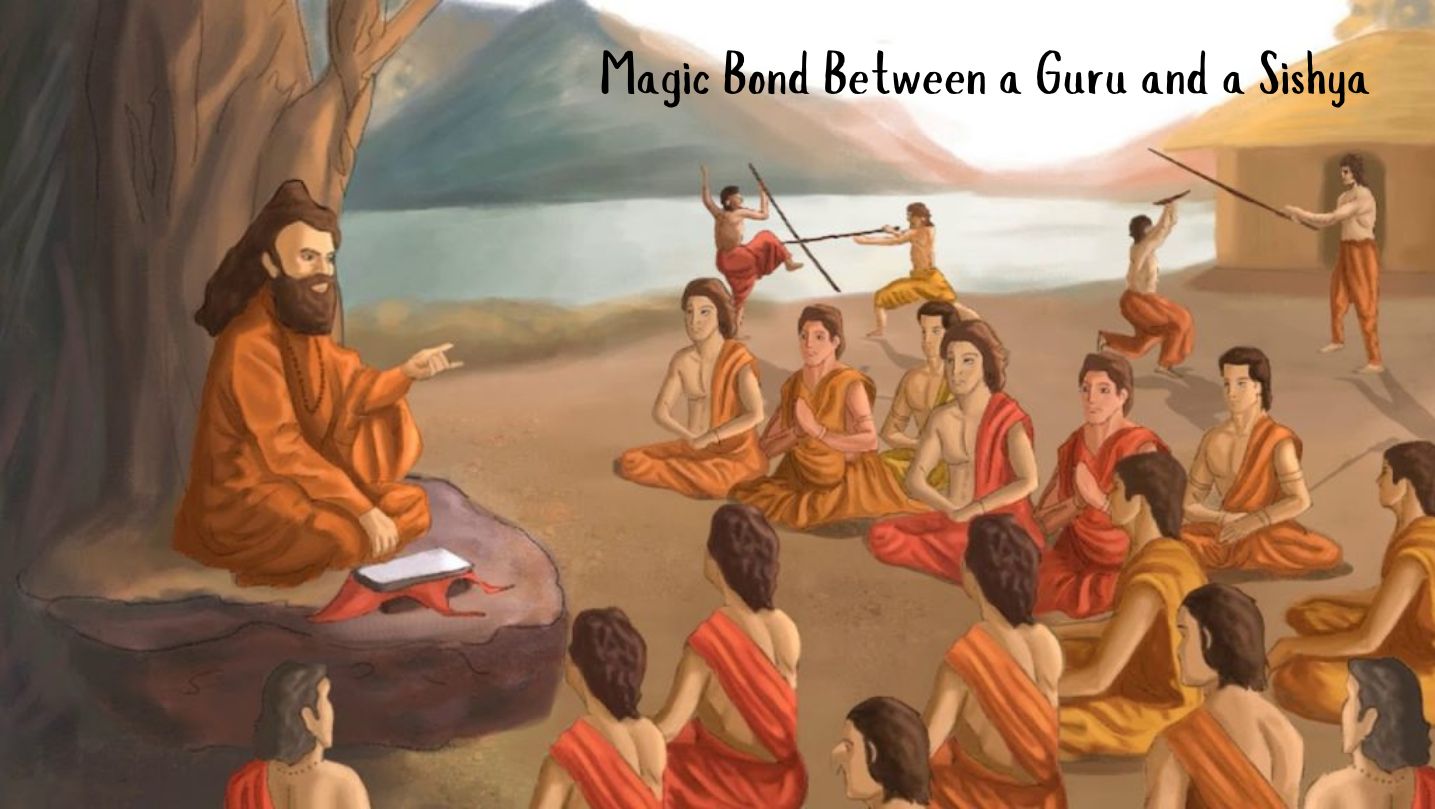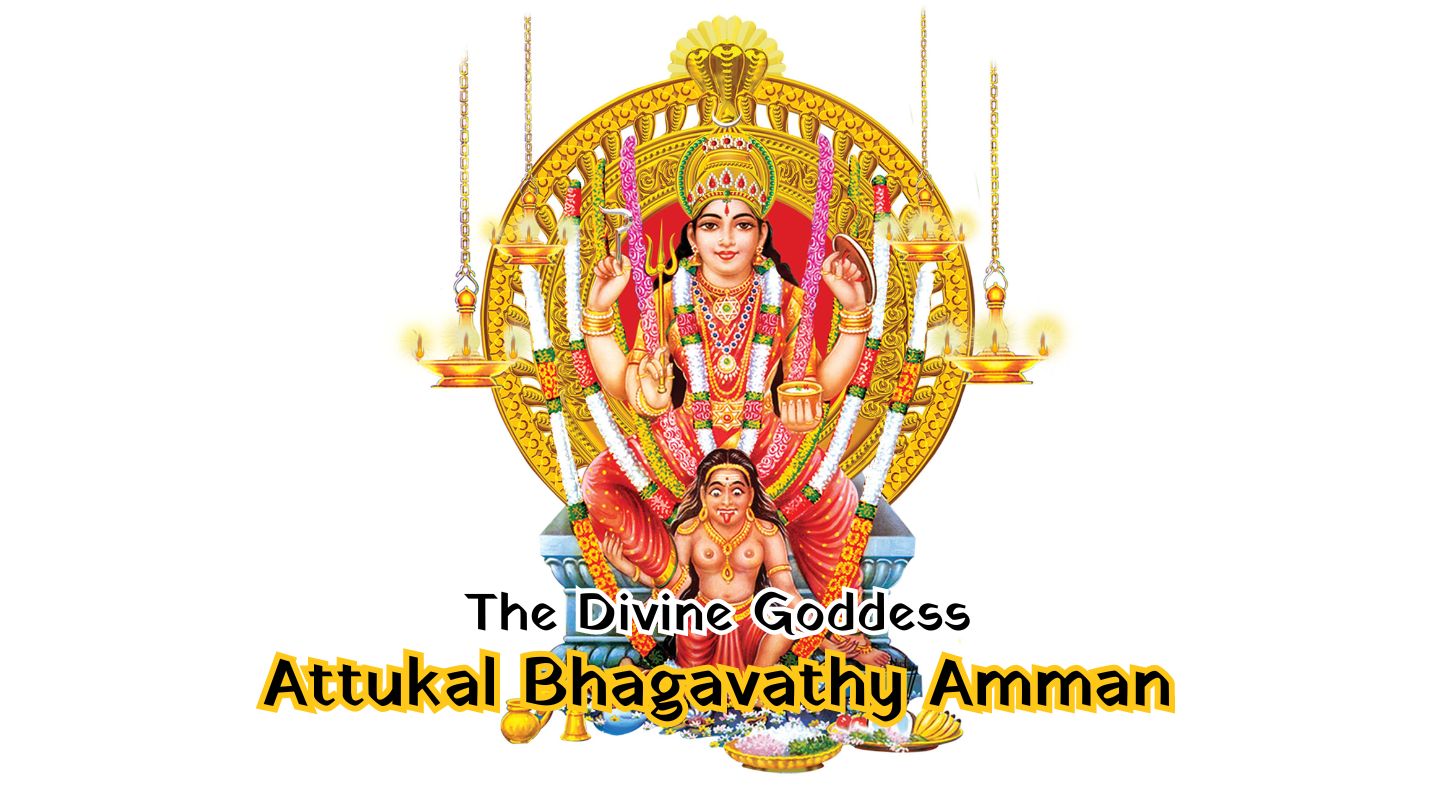In Indian culture, if there is one thing that is respected, revered or has an esteemed presence, - it is WATER. Water is linked to everyday aspects of a persons' life, so much so that it becomes an indispensable element in the lives of an Indian household. Water is used in divine worship as the idols are bathed every day with it. Every Pooja room at home has a vessel filled with water, after prayers, it is then consumed as Theerth. Water is sprinkled at the entrance of every home at dusk and dawn every day. Rivers are worshipped as Goddess, and people throng to places like Haridwar to take a dip in the holy waters of River Ganga. These are only a few instances where water is respected, and the list is endless. Why does water hold such significance in Indian culture, and what is the reason behind its reverence?

The world and the human body is made up of 5 elements or Pancha boodhaas. They are the Earth, Fire, Water, Air and Space. in fact, 70% of a human body is composed of water ( in the form of blood). The ancient Indian Saints and Sages believed water to have the special power of holding memory. i.e, the molecular structure of water can be changed without changing the chemical composition. The sounds and thoughts of people can change the molecular structure of water. Water can thus become an elixir ( when exposed to positive vibrations and mantras) or a poison (when exposed to negative vibrations).
Water and Hindu Rituals
Water is the most important element for any ritual in India. It is first used as a cleaning agent to clean the Idols, vessels and oneself to get rid of any negative energy. The Deities are daily bathed in water at temples while uttering mantras, and this water is consumed later as prasad / Theertha.
Another place where water is used extensively is, during the “ Purna Khumbam”. Purna means full and Khumb means a pot or vessel. Usually, the pot is filled with water and decorated on the neck with mango leaves with a Coconut on top.
One can also notice, that during any yagna or pooja, a Kalasa (pot) is kept in the middle, adorned with turmeric, kunkum, mango leaves, flowers and coconut. This pot is mostly made up of brass or silver, and it contains water.
During the Pooja, Mantras are chanted, and the water gets charged (becomes filled with positive vibrations). Later, this water is either consumed or sprinkled on people / house.
In most households, women sprinkle water at the entrance of their homes at dusk and dawn. There is also the practice of sprinkling water around the plate or leaf before a meal.
Also, in India, Rivers hold much reverence. They are given female names and, are worshipped throughout the country. Rivers are considered sacred, for it brings livelihood, prosperity and positivity. Out of all the rivers in India, River Ganges is the most sacred one in India. One dip in the Ganges river is said to purify one’s soul and alleviate all negativity. After one’s death, the ashes when dissolved in the river, are said to help the soul attain moksha.

The largest gathering of people in the world occurs at the “Khumba Mela” - a spiritual pilgrimage. Once in three years, people gather at the sacred cities of Allahabad, Ujjain, Haridwar and Nasik to take a dip in the holy river Ganges. A dip in the river is said to wash away the sins of a person.
Water can also be found in the form of temple tanks of any traditional, old temples. Due to the proximity of the temple, these water tanks have immense positive energy. The devotees take a dip in the holy temple tanks before offering their prayers at the temple.

Grandmother’s wisdom
Do you remember our grandmother’s lesson? They used to say not to accept food, water, and juices from just anybody and to receive food only from people who loved and cared for us.
Also, the grandmother’s used to take baths, pray or chant mantras in the pooja room, and then enter the kitchen to cook delicious secret recipes that were handed down generations before them. Some grandmothers cook while chanting mantras or listen to chants and prayers while cooking.
This is because the thoughts of the person preparing the food get absorbed into the food/water and get passed on to the receiver. This is the reason why in temples and pooja rooms at home, there is a vessel of water with Tulasi leaves. After prayer, the water absorbs the positive vibrations, then it gets consumed as prasad / Theertha.
It is only now that the scientists are studying water and are rediscovering and reiterating what our grandmothers and sages knew 1000 years ago. Dr Masaru Emoto, a Japanese Scholar and researcher had extensively studied the property of water and had released a book called ‘ Miracles of Water’. In his study, the scholar photographed the formation of water crystals when water is exposed to various things emitting positive and negative vibrations. The water crystals formed thus were photographed. It was found that positive and loving vibrations resulted in the beautiful formation of water crystals, and the crystals were broken when the water was exposed to negative vibrations.
We can thus proudly rely on the wisdom of our ancestors and respect the tremendous knowledge they possessed on the advancement of human beings.
 I am Vaishnavi Gurusankar, a passionate educator, a wife and a mother. I have over a decade of experience as an educator and have been closely working with teachers and children of all ages. I am also an active parenting blogger and founder of Magical Unicorn, an exclusive parenting blog founded on Indian ethos, values and stories at its core.
I am Vaishnavi Gurusankar, a passionate educator, a wife and a mother. I have over a decade of experience as an educator and have been closely working with teachers and children of all ages. I am also an active parenting blogger and founder of Magical Unicorn, an exclusive parenting blog founded on Indian ethos, values and stories at its core.
NEXT ARTICLE

At the southernmost tip of this mesmerising ensemble lies the majestic Great Nicobar Island, boasting an impressive landmass of about 910 square kilom...

Bharath has always been a land traversed by spiritual masters/ Guru since time immemorial. These spiritual masters have always upheld the core princip...

South India contains its fair share of unique pilgrimage centres. These divine places of worship have a prominent Sthala Purana, devoted followers, di...